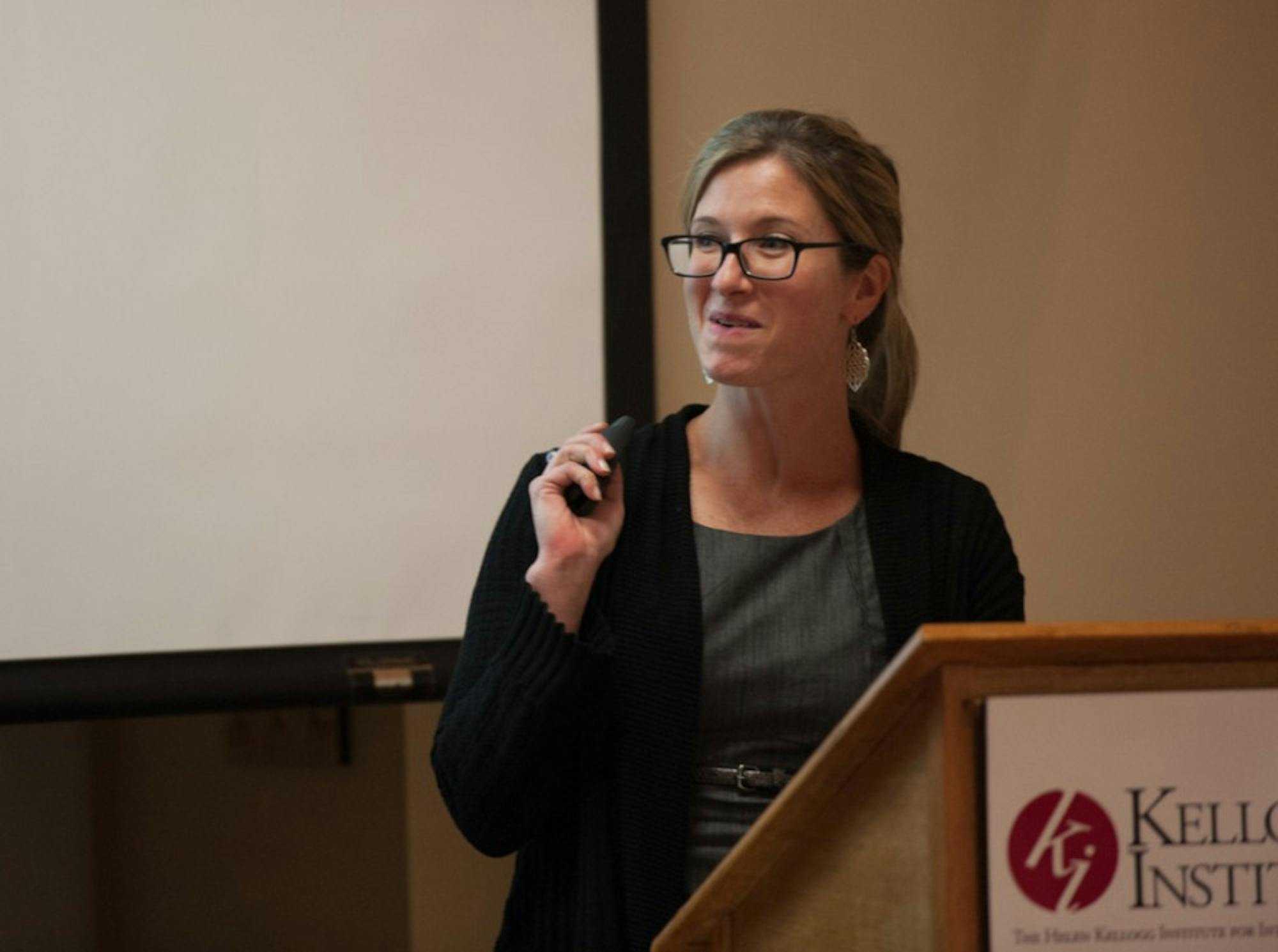Tuesday afternoon at the Hesburgh Center for International Studies, University of Wisconsin-Madison assistant professor of political science Erica Simmons analyzed the social dynamics of protests over water privatization in a lecture entitled “Water, Community and Privatization in Cochabamba, Bolivia.”
Simmons quoted a commander of a Cochabamba army unit assigned to monitor the protestors who noted the diversity of the demonstrators: “My wife, my child, my empleada [employee] — they were all in the streets.”
”Water is not just a biophysical commodity, but a material and ideational resource,” Simmons said. “… Water’s ideational meaning is seen in both imagined and quotidian communities."
Simmons said imagined communities refer to the invisible groups people form based on “regional, national and ethnic identifications,” while quotidian communities form as a result of “face-to-face interactions and everyday relationships.” The imagined communities demonstrated heightened patriotism and allegiance to the country, she said.
“Flags were everywhere at the protests representing patira or ‘the homeland,’” Simmons said.
Simmons said many locals she interviewed emphasized the importance of uso y costumbres, or customs and traditions that relate to indigenous customary law in Latin America. She said interviewees also stressed the need to maintain a "connection to the past.”
“This helps to explain the puzzle of middle and upper class participation in the protests,” Simmons said.
Simmons said within quotidian communities, water access was a vital part of daily society and order.
“Water structured social interactions in local communities," she said. "… Water councils formed by local governments and regular meetings at water wells formed a sense of community.”
Simmons said the city of Cochabamba was significant to the water protests across Brazil because of its presence as a large, well-known city.
“Cochabamba is the breadbasket of the country and gained economic importance from silver and tin mining booms,” Simmons said. “It has also been a hotbed for mobilization … People [in Cochabamba] valued independence from federal state intervention in local government.”
Ultimately, the water protests became a uniting factor for residents of Cochabamba, Simmons said.
“Water serves as a connection to community,” she said.













